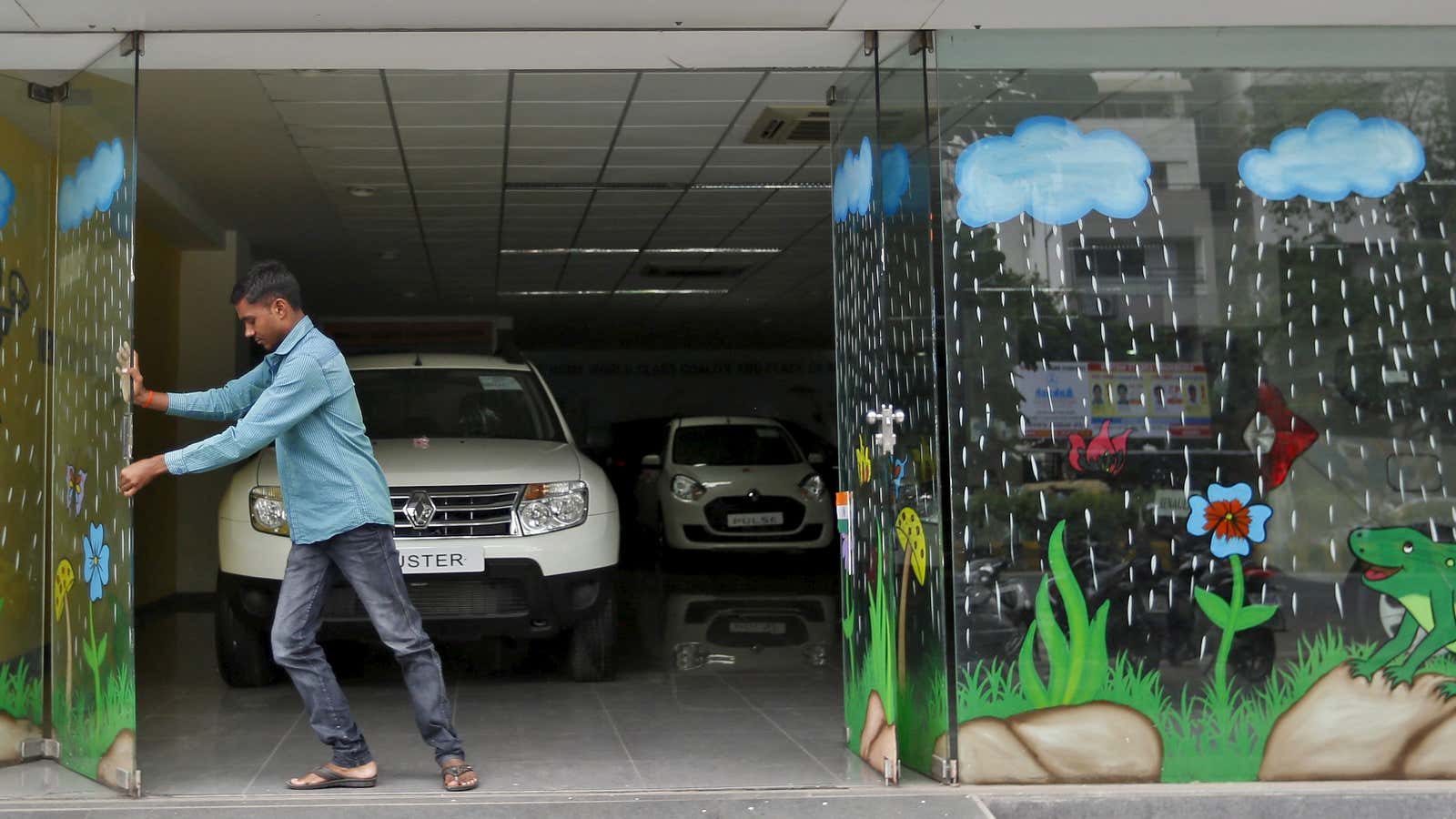India’s battered automakers are dragging down jobs in allied industries as well.
Domestic passenger vehicle sales have been falling for nine months now, according to data released by the Society of Indian Automobile Manufacturers (SIAM) yesterday (Aug. 13). Sales in July fell 30.9% year-on-year, making it the worst month for the industry in over 18 years.
Muted consumer sentiment and a credit crunch that has crippled lending at India’s non-banking financial companies (NBFCs) are believed to be the reasons behind the slowdown.
Car dealerships have cut down around 200,000 jobs in the last three months in response to the slump, according to Ashish Harsharaj Kale, president of the industry group Federation of Automotive Dealers Association. That is close to 8% of the total estimated workforce. Hundreds of dealerships have also shut shop.
Automobile component manufacturers have also terminated between 10% and 15% of their estimated 5 million workforce, according to Vinnie Mehta, director general at the Automotive Component Manufacturers Association of India. The industry body has warned of 1 million job losses if sales don’t pick up.
Automakers themselves are cutting contractual jobs as they wind down production. India’s biggest carmaker, Maruti Suzuki, cut down production for the sixth straight month in July. It has also dismissed 6% of its temporary workforce.
“The industry has stopped all fresh recruitment,” SIAM director general Vishnu Mathur has told CNN Business.
This worsens India’s already-dire jobs scenario. Unemployment in the country has been growing over the past two years, according to the Centre for Monitoring Indian Economy (CMIE), a business information company.
Roadside assistance
In a sign of some improvement in consumer demand, the monsoon rains have been catching up to their normal levels, which is expected to boost demand for vehicles from rural parts of the country.
The festive season of Dusshera and Diwali, around which time consumers generally loosen their purse strings, is also due in October.
However, so far, the administration of prime minister Narendra Modi has not shown an inclination to yield to the industry’s demands, including a cut in the 28% goods and services tax (GST) levied on passenger vehicles.
